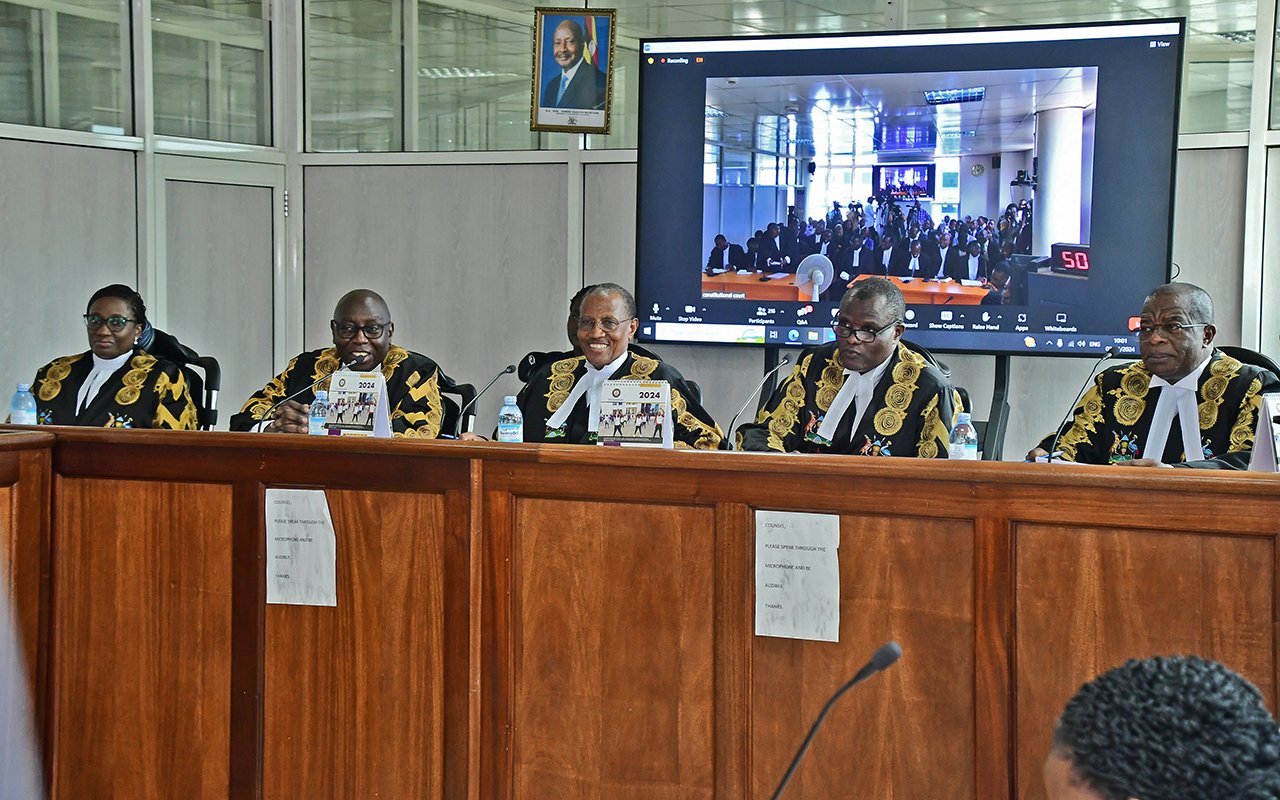Prime
Anti-gay law: We need to keep engaging the West to attract capital, says Matanda

Mr Dennis Matanda is an external trade consultant for the Presidential Advisory Committee for Exports and Industrial Development. PHOTO/ EDGAR R. BATTE
What you need to know:
- Mr Dennis Matanda is an external trade consultant for the Presidential Advisory Committee for Exports and Industrial Development (PACEID), which the President’s son-in-law Odrek Rwabwogo chairs. Matanda speaks to Edgar R Batte about what being suspended from the African Growth and Opportunity Act (Agoa), the United States’ flagship programme for Africa, means for Uganda.
What is your affiliation and interest in Agoa?
My interest is in the trade between a developed country and a developing one. That exchange of goods between the United States and Uganda has an overall capacity to generate development because it gives Ugandan exporters and the business community additional access for specific products to the United States.
Instead of traditional products or cash crops like coffee, cotton, or tea, Agoa allowed Uganda to export products such as textiles because the demand for clothes in the States remains inelastic. Giving African countries free access to export goods to America without paying taxes is a golden opportunity, and that’s my interest in this.

US president Joe Biden suspended Uganda from Agoa in 2023.
What did Agoa mean to Uganda-US relations?
The United States is the world’s largest provider of interested and disinterested capital.
When we receive donor aid or official development assistance, that is disinterested capital because it is meant to help increase consumption and expenditure.
But when we get American investors that pour foreign direct investment (FDI) or US direct investment abroad (USDIA), that is interested capital because it focuses on profit maximisation.
FDI and direct investment abroad are very important to Uganda’s development because they are the most effective external development tool for emerging economies like Uganda.
Essentially, Agoa is a critical way to attract both interested and disinterested capital – but mostly FDI because it was used to get American investors that are keen to take advantage of the market access programmes back home.
These investors would look at Uganda as an Agoa beneficiary, come here, set up factories to export back home. I think that’s one of the things we may have lost; that’s the capacity to access more foreign direct investment and the capacity to access additional amounts of official development assistance from the United States.
Because of Agoa, we might have lost some opportunities.
Uganda and the United States as the status stands, where do we go from here?
At that moment, although Uganda is suspended from exporting under Agoa, the country is not banned from exporting to the US. After all, Agoa wasn’t the only way to export to the US.
There is GSP (generalised system of preferences); there is MFN (most favoured nation, or basically normal trading relations).
But it is essential to remember that Agoa was an additional preference programme that allowed additional products into the United States duty free. If you still want to export to the United States, nothing is stopping you except the 66 cents tax on each kilogramme of vanilla, or a 3.3 percent tax on certain other products.
Second, the fact that we were suspended doesn’t mean that the relationship has ended. Because Agoa is a unilateral arrangement, it’s not very difficult to work with partners in the US to see that the laws suspending us can be lifted.
Granted, we can explore the different alternatives, but the fact is we had a long-term relation under Agoa. What have we lost in termination of the trade deal?
Let me put something on the table. Agoa may not seem like a major thing to Uganda – but it is, in fact, major. It was a signal that Uganda has the capacity for additional benefits.
For example, even if a product like vanilla was not admissible into the United States under Agoa, Uganda’s suspension from Agoa represents a seismic shift because those that were exporting vanilla to the United States shall be forced to find additional markets or friends in Canada just so they can have access to the American market.
More importantly, our vanilla farmers may need to invest significant amounts of money to add value to their product so that they are not impacted by non-Agoa tariffs of 66 cents per kilogramme. Worst of all, this lack of Agoa means American buyers are going to get more product from Madagascar.
What are your two cents in regard to the way Uganda handles its diplomatic affairs?
I don’t think we mismanaged this relationship, but the course of events saw it deteriorating. Nevertheless, we should calm down and engage our friends that we were forced into this situation, but we still have the desire to work together.
That ultimately will firm our relationship even better because even in their own country not all people believe in gay rights and human rights. We should attract them to re-journey with us. Diplomatically speaking we should have not kept silent. We should have engaged our friends already.
Uganda’s removal from the Agoa trade deal emanates from human rights violation and how we communicated thereon, could we have, perhaps, averted this with proper communication?
We needed to inform the world that even though Uganda is passing an ostensibly draconian rule, it’s not against human rights. This Uganda of ours was one of the first African countries to have a female vice president and people with disabilities represented in Parliament.
Second, it is important to distinguish between cultural violations and human rights violation. Ugandans do not find people on the street and kill them. When we find sexual immorality and labour to wipe it out from the face of the society, we shouldn’t be misunderstood. That’s our case but it’s not that minorities are being persecuted.





